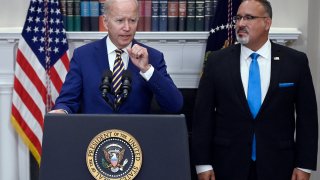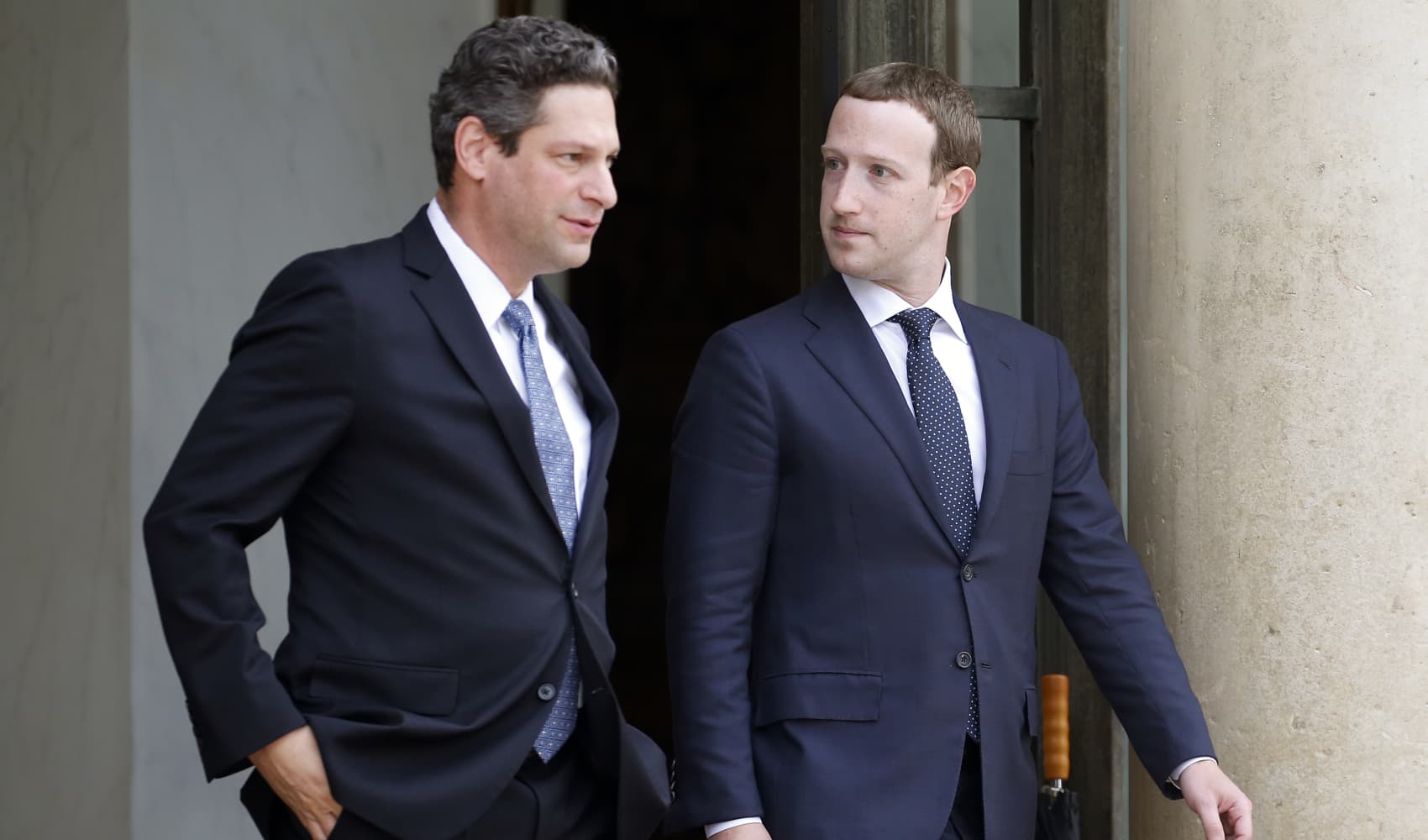
- Arizona Attorney General Mark Brnovich has brought a legal challenge against the Biden administration's sweeping student loan forgiveness plan, threatening to throw the accounts of tens of millions of borrowers into jeopardy.
- Brnovich is arguing that the U.S. Department of Education doesn't have the power to cancel hundreds of billions of dollars in consumer debt without Congress.
Arizona Attorney General Mark Brnovich has brought a legal challenge against the President Joe Biden's sweeping student loan forgiveness plan, possibly putting the administration's proposal to wipe out much of the debt of tens of millions of borrowers in jeopardy.
"This mass debt forgiveness program is fundamentally unfair, unconstitutional and unwise," Brnovich said in a statement on Thursday.
Get top local stories in Southern California delivered to you every morning. >Sign up for NBC LA's News Headlines newsletter.
More from Personal Finance:
Inflation and higher rates are a 'dangerous mix'
Pumpkin spice lattes are popular due to 'very simple economics'
Government bond yields soar as markets weigh recession threat
The lawsuits against Biden's plan to cancel up to $20,000 in student debt for millions of borrowers are starting to pile up. The first legal challenge came on Tuesday from a lawyer working for a conservative legal group. In addition, Republican attorneys general from six states, including Iowa, Kansa and South Carolina, also brought a legal challenge against the policy this week.
Brnovich is arguing that the U.S. Department of Education doesn't have the power to cancel hundreds of billions of dollars in consumer debt without Congress.
Money Report
The White House did not immediately respond to a request for comment.
The six states are accusing the White House of overstepping its executive powers in the loan forgiveness plan.
In the lawsuit, filed Thursday in a federal court in Missouri, the states argue that Biden's cancellation plan is "not remotely tailored to address the effects of the pandemic on federal student loan borrowers," as required by the 2003 federal law that the administration is using as legal justification.
The states of Arkansas, Iowa, Kansas, Missouri, Nebraska and South Carolina joined in filing the lawsuit.






